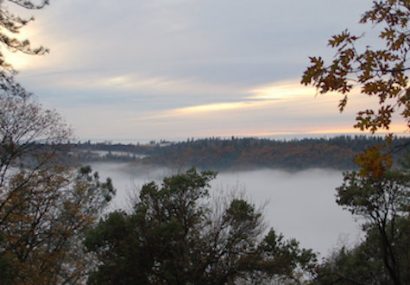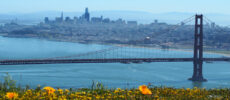The California WaterFix project, also known as the “Twin Tunnels,” is the statewide plan to address water supply and delivery needs by constructing two 30-mile long tunnels, each 40 feet in diameter, to transport up to 9,000 cubic feet per second of Sacramento River water to state and federal export facilities in the southern Sacramento-San Joaquin Delta. Originally proposed as the Bay Delta Conservation Plan in 2006, WaterFix has undergone a number of reconfigurations over the years. Now, in another major shift, Governor Gavin Newsom has announced that he intends to scale the project back to a single tunnel as part of a broader portfolio approach to water security. The Governor’s announcement prompted requests to stay pending litigation and other proceedings, giving WaterFix proponents time to map out a path forward. Meanwhile, Delta legislators have introduced Senate Bill (SB) 204, which would impose additional review requirements on any contracts used to finance, design, and construct the project.
Governor Newsom’s State of the State Address
Governor Newsom’s first State of the State address on February 12, 2019 discussed water issues in California, including drinking water safety and infrastructure. Notably, the Governor broke from former Governor Jerry Brown’s longstanding conveyance vision of two tunnels in the Delta, in favor of a single-tunnel WaterFix. Governor Newsom also announced his appointment of Laurel Firestone, co-founder of the Community Water Center, to the State Water Resources Control Board (SWRCB) and appointment of Joaquin Esquivel as the new SWRCB Chair. The Governor underscored that these changes will help balance the state’s diverse water needs by promoting a portfolio approach to water infrastructure and long-term planning.
Ongoing Court and Administrative Proceedings Temporarily Stayed
Governor Newsom’s February 12th announcement left participants in the various ongoing WaterFix proceedings guessing as to how the Department of Water Resources (DWR) intends to reconcile the two-tunnel version of the project that was approved in 2017 with the Governor’s vision of a one-tunnel project. On February 28, 2019, parties in the coordinated WaterFix cases pending in Sacramento Superior Court sought a 60-day stay to allow DWR to determine the extent to which the Governor Newsom’s direction affects the project’s environmental review documents and approval. The following day, DWR itself requested a 60-day stay in the long-running SWRCB hearing on DWR and the U.S. Bureau of Reclamation’s joint water right change petition, and a 90-day stay in federal court litigation challenging the validity of the federal Biological Opinions for the project. As of the writing of this article, stays have been granted in the SWRCB hearing and CEQA litigation, while the federal district court directed that DWR must confirm it will cease all preparatory activity related to WaterFix (other than review of the project in light of Governor Newsom’s announcement) before it considers granting the 90-day stay.
Proposed Oversight under Senate Bill 204
On the legislative front, State Senator Bill Dodd introduced SB 204 on February 1, 2019, which would add an additional layer of legislative oversight and public scrutiny to the WaterFix implementation process. SB 204 would require DWR and the Delta Conveyance, Design and Construction Authority, the entity tasked with financing WaterFix through participant contracts, to provide information on pending WaterFix-related State Water Project contracts and contract amendments to the legislature for review prior to finalization. Under the bill, all proposed contracts and amendments for the planning, design, or construction of WaterFix must be submitted to the Joint Legislative Budget Committee (JLBC) 60-days in advance of their execution. If the JLBC chooses to hold a public hearing to review a contract, DWR would be prohibited from approving the contract for 90 days after the first hearing.
SB 204 supporters argue that the proposed oversight is necessary to protect the Delta economy, culture, and environment, and to prevent increased contractor reliance on Delta water. Opponents of the bill contend that the additional restrictions will significantly and unnecessarily delay any action on WaterFix and undermine efficiency and cost-effectiveness in the contracting process. The bill cleared its first committee hurdle on March 12, 2019, passing the Natural Resources and Water committee with a unanimous 6-0 vote.
Conclusion and Implications
As can be expected for a project of this scale, WaterFix has undergone numerous revisions and refinements in the past 13 years. Advocates may see these changes as hurdles potentially slowing the project down, but not ending it. To that end, the Governor emphasized that he wants to build on the important work that has already been done. However, his departure from his predecessor’s vision at this stage of planning may be a more significant setback that requires additional administrative, environmental and court or even legislative review. With the temporary stays of the SWRCB hearing and the state court proceedings, it can be expected that DWR will announce its plans to implement Governor Newsom’s direction in the coming months.
(Austin C. Cho, Meredith Nikkel)




